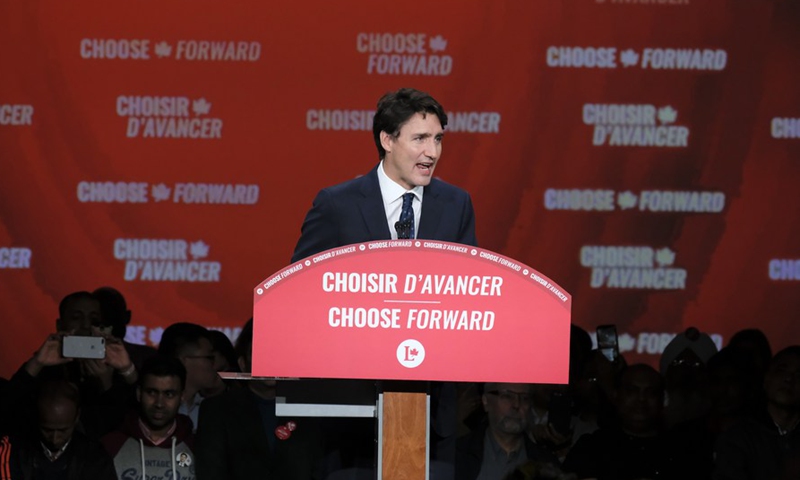
During his presidential campaign last year, Democratic Party nominee Joe Biden repeatedly emphasized that there would be a renewed emphasis on alliances once he was in office. After Biden's election victory, Canada, one of the closest allies of the US, was the first country to send a congratulatory message. Prime Minister Justin Trudeau expressed his expectations for better US-Canada cooperation. But before they could even have their first phone call, Biden canceled the Keystone XL pipeline.
Immediately, this raises questions about the future of US-Canadian ties. Starting from Alberta, Canada, this 1,179-mile project was planned to run through US states including Montana and Nebraska to connect with the existing US pipelines. After its completion, the Keystone Pipeline System would be able to transport 800,000 barrels of bitumen per day from Calgary, Canada, to refineries along the Gulf Coast of the US.
On paper, it seems that this project would benefit Canadian jobs and their exports, as well as US jobs and its energy security. However, the push for the completion of the project hasn't been going so well in the US. And this project has become a not-so-pleasant part of US-Canada relations.
The ups and downs of the Keystone XL pipeline project should have made Canada understand that no alliance can override the interests of the US. No matter who the US president is, no matter if they disapprove or support the project, it was all for the interests of the US itself — and votes in the US elections.
While working in the Obama administration as vice president, Biden was active in regulating carbon emissions, and has always supported clean energy and climate governance. Now that he is president, he is poised to embed action on climate change and has ambitions to lead the US back to the leadership position on global climate governance. Therefore, it is easy to understand why he is so determined and quick to work on the Keystone XL pipeline project.
Both Biden and Trudeau need to understand how to repair the deteriorating US-Canada relations that were left to them from the tatter of the Trump administration. In his statement on congratulating Biden, Trudeau expressed many expectations for the US-Canada relationship. For instance, both countries should work together to fight against COVID-19, take actions on climate change, and improve the trade environment. Moreover, Trudeau has been hoping that the Biden administration will help him out with issues concerning China-Canada relations. But as mentioned above, Trudeau should remain aware that Biden's campaign including "Buy American," as well as parts in China-US relations that represent US interests, could be stumbling blocks for his hopes.
If a pipeline project is not enough to make Canada realize potential dangers of dependence on the US and the benefits of achieving greater independence, Canada can look at the experience of Australia, another close US ally.
Australia is a classic poor example of what to do under similar circumstances. China and Australia used to have good trade relations and even a Free Trade Agreement. But after Australia followed the US' lead under Trump provoking and vilifying China, relations between the two countries broke down completely. Australian products in the Chinese market are losing their share to their American counterparts.
Australia has been very anxious about this matter. In an interview with Fox News on December 28, 2020, John Blaxland, Professor of Intelligence Studies and International Security at the Australian National University, said, "There's always been in Australia a bit of a fear of abandonment… That fear of abandonment is now at an all-time high with Joe Biden set to assume the presidency."
Of course, there is also a good example on this issue, namely the European Union. There is no doubt that most countries in the EU are inseparably allied with the US, but the conclusion of the China-EU Comprehensive Agreement on Investment proves that EU countries are seeking more independence with their policies toward China.
Thus, Canada should understand that Washington's "America First" policy is aimed at all countries. Canada needs to consider more about the gap between the protection of its interests and the dependence on the US. Otherwise, it could become the next Australia, and not the next EU.
The author is a research fellow with the Center for Canadian Studies, Guangdong University of Foreign Studies.opinion@globaltimes.com.cn